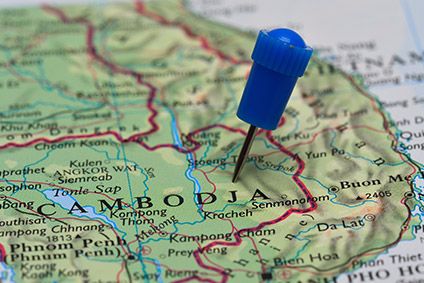
Cambodia saw its garment, travel goods, and footwear exports increase 16.1% year-on-year during the first half of 2018 – reaching a two-year high.
According the World Bank’s East Asia and Pacific Economic Update for October, the garment, travel goods, and footwear export growth was up from 8.3% at the end of 2017. Consistent with this trend, fabric imports, largely used as inputs for garment production, grew at 37.1% during the first six months of 2018, representing a three-year high.

Discover B2B Marketing That Performs
Combine business intelligence and editorial excellence to reach engaged professionals across 36 leading media platforms.
Cambodian firms source about 30% of their inputs locally, and a significant share of these are purchased from foreign firms operating in Cambodia, the report explains.
The country’s economy also continues to grow robustly, and against a backdrop of better-than-expected export performance, rising consumption and upbeat investor sentiment, the World Bank has upped its growth outlook. Underpinned by exports and government spending, Cambodia’s growth is expected to marginally accelerate to 7% in 2018, compared to 6.9% in 2017, but will ease to 6.8% in 2019 and 2020.
“Growth prospects among the region’s smaller economies are generally favourable, reflecting strong domestic demand over the medium term,” the report notes. “The growth outlook remains strong for Cambodia, Lao PDR, Mongolia, and Myanmar, with annual growth rates in each country projected to average over 6% during the period from 2018-2020.
Robust external demand during early 2018 was a key source of growth for countries with large export-oriented garment and tourism sectors, including Cambodia, Thailand and Vietnam.

US Tariffs are shifting - will you react or anticipate?
Don’t let policy changes catch you off guard. Stay proactive with real-time data and expert analysis.
By GlobalDataAccording to an overview of Cambodia on the re:source by just-style strategic planning tool, the country’s apparel industry has grown rapidly since the mid-1990s and is now the country’s largest manufacturing sector, worth US$6.8bn and accounting for almost 80% of total exports.
Cambodia is one of the major beneficiaries of the EU’s Everything But Arms (EBA) duty-free preference scheme, but the European Commission has just launched a procedure to withdraw the country’s access to the trade programme over human rights violations.





